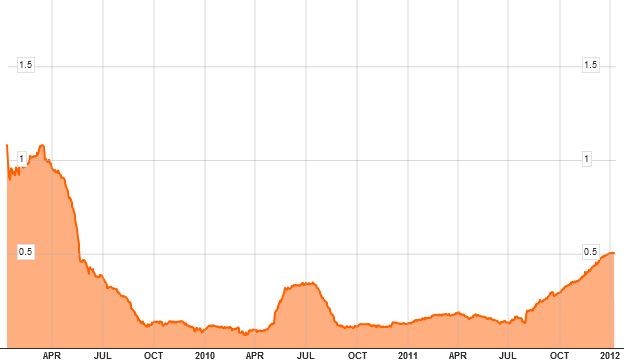The Coronavirus has taken center stage in the news and in the markets. While it has been on our radar for a bit of time now, the latest reports out of Italy and South Korea have escalated levels of concern, and there has been a corresponding reaction in the financial markets. In the past two days, the Dow Jones Index fell nearly 2,000 points, which is more than a -8.4% drop from its high. For the year to date, the Dow is off -5.4% and the S&P 500 is off -3.6%. The rest of the world (ACWI ex US) is off -5.5%.
Given the volatility in the markets, we thought it might be helpful to provide some insight into our thoughts on what is really happening, and whether this is a short-term adjustment or if there’s something more long-term going on.
Let’s start by looking at some statistics. We have found Worldometer to be a useful site for monitoring many statistics related to the COVID-19 Coronavirus. According to this site, while the total infected over time continues to increase, the total active cases peaked about a week ago at 58,747 and have been falling. This number incorporates all of the new cases in South Korea and Italy. We are hopeful that this trend will continue.
The COVID-19 Coronavirus outbreak has been responsible for 2,711 deaths so far, and is being taken very seriously by the CDC, WHO, and other government agencies. To put the fatality rate in perspective, the SARS outbreak which occurred in 2002 had a fatality rate of around 10%. COVID-19 is more contagious than SARS, but has a fatality rate of around 2% in China and around 1% outside of China. The 2019/2020 influenza virus season has resulted in 8,200 deaths so far and has a historical fatality rate of around 0.1%. Of course, these numbers have been impacted by vaccines, medicines, and treatments. Another important factor from a US perspective is that our health systems truly are superior to the rest of the world’s. We are much more advanced technologically today than we were during the SARS outbreak. Drug companies are already working on drugs to combat COVID-19, and there are already clinical trials of new drug treatments occurring.
From a markets and economic standpoint, the question that we need to ask ourselves is whether this is a short-term concern or a long-term concern. In 2020, thus far, we have seen solid economic data. There is no doubt that there will be some economic impact from COVID-19, and it is likely that some of the expected boost in corporate earnings (outlined in our Capital Markets Outlook) that was expected in the 2nd quarter will be delayed another quarter or two. We do believe that the US economy is somewhat insulated, and that many of the supply chains from China have already been shifted as a result of the Trade War. That said, companies that are exposed to China will definitely be affected for a period of time.
We believe that the U.S. Consumer remains in a great place, and the key economic drivers we have been witnessing will continue in the year to come. This is not to downplay the seriousness of COVID-19, but rather to paint the picture of the expected longer-term outcome. We expect to see some additional volatility, and we also expect to see some financial impact over the next couple quarters. However, we believe that any drop in earnings and economic activity will be short term and will rebound quickly once the COVID-19 outbreak is tempered.
We are watching news and data feeds incredibly closely, and stand ready to make positioning changes for our clients quickly if anything fundamentally changes.



